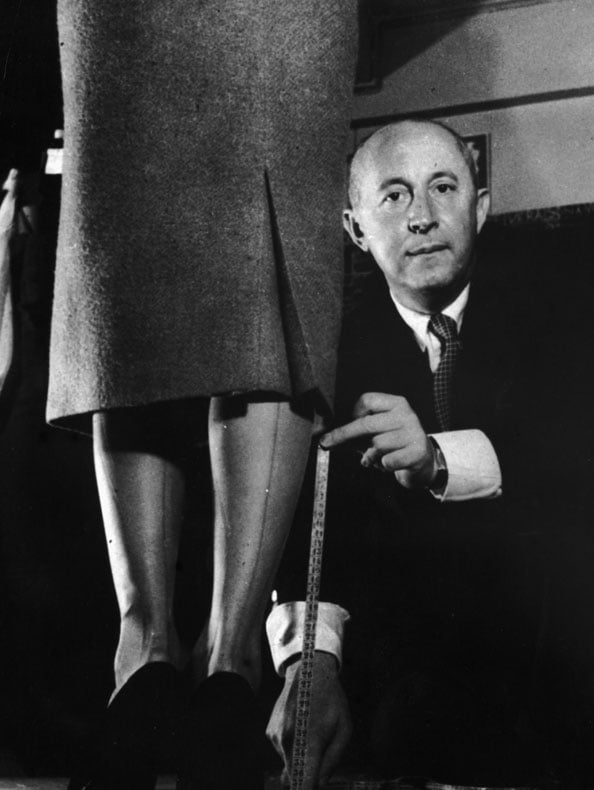
On January 21, 1905 in the seaside town of Granville on the coast of Normandy legendary designer Christian Dior was born. Now, on the 110th anniversary of his birth, we celebrate the son of a wealthy fertiliser manufacturer who went on to become one of the world’s most renowned couturiers.
Over the decades Christian Dior revolutionised fashion. So to celebrate the King Of Couture, here are the five most defining moments in his career, and, of course, our favourite Dior looks.
Christian Dior Brings Back Decadent Fashion
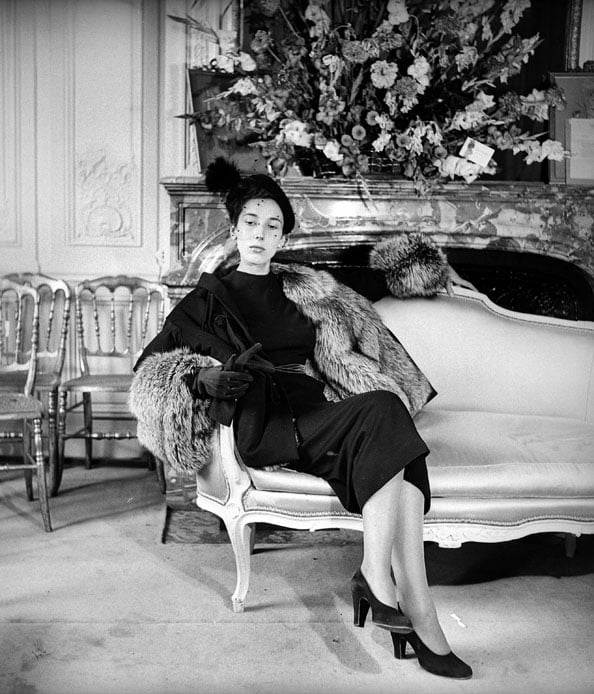
One of New Looks from Christian Dior’s debut, post-war collection
During WWII cloth was rationed, which means fashion was unadorned, skirts were short and straight (to conserve material) and there was a shortage of luxe materials such as wool, silk and furs. In 1947, when Christian Dior debuted his collection, he presented 90 different looks which were christened New Look. The collection was luxurious, bringing back high-end fabrics. He dropped the hemlines to calf-length, and got rid of the restricted silhouettes in favour of full skirts, a cinched waist and fuller busts. He represented, and offered, opulent post-war fashion.
Christian Dior Became Associated With Royalty And Hollywood
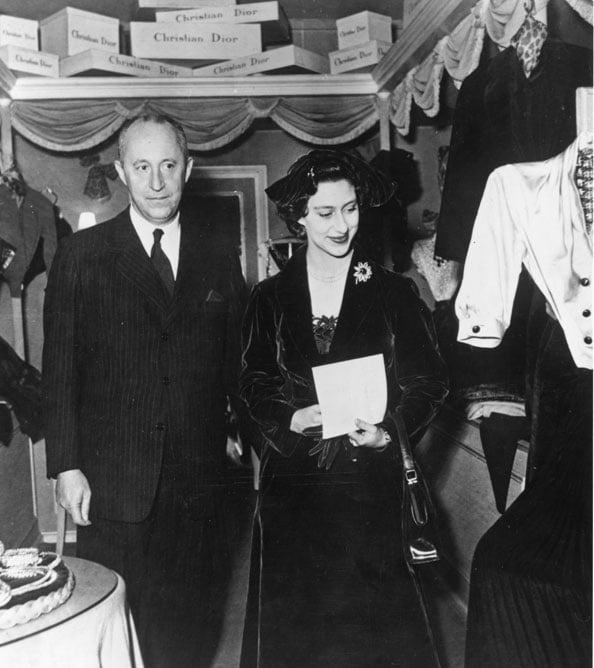
Christian Dior with Princess Margaret of England. She was often a guest of honour at his shows
Thanks to its flattering styles, Christian Dior’s pieces fast became the must-have fashion for world-famous stars. He found himself inundated with orders from the likes of Rita Hayworth and Margot Fonteyn. But it wasn’t just Hollywood that was interested, the British royal family were also fans. According to Vogue King George V reportedly forbade the young princesses, Elizabeth and Margaret, from wearing Dior’s clothes so close to the end of the war in case it set a bad example at a time when rationing was still in force.
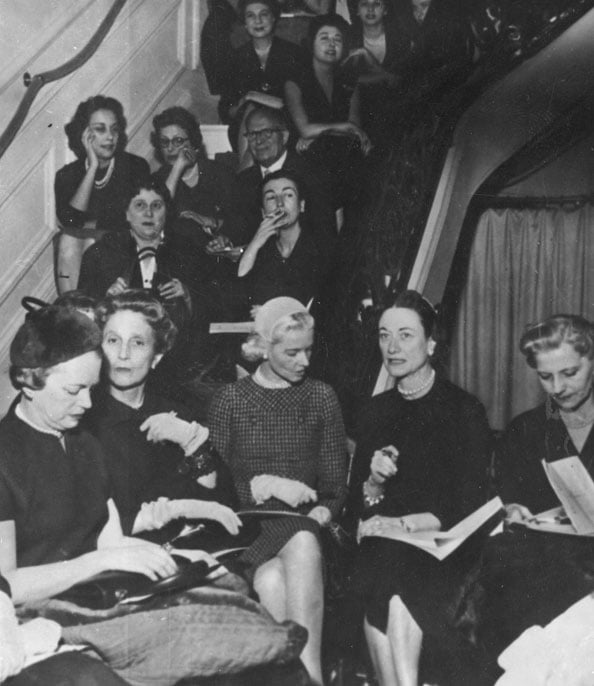
There is such a large attendance for a preview at the House of Dior, Paris, that the Duchess of Windsor, amongst others, is forced to sit in the hall
The First Ready-To-Wear House And Miss Dior Perfume Are Launched
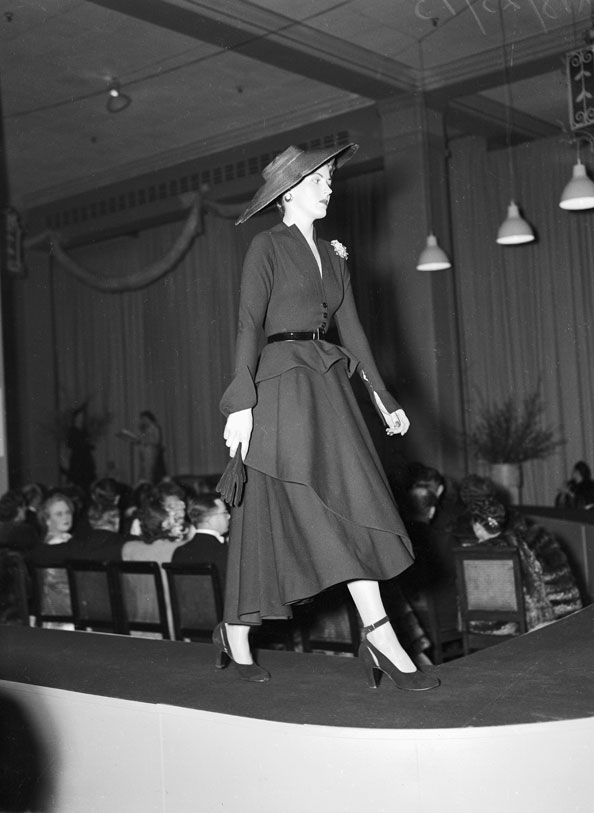
A model walks the catwalk during the Christian Dior fashion parade at David Jones Factory on July 31, 1948 in Sydney,Australia
A year later (November 1948), Dior set trends once again, this time by establishing a first-of-its-kind luxury ready-to-wear house on New York’s prestigious Fifth Avenue. He later made an innovative move into perfumes, first launching Miss Dior, and later Diorama. Miss Dior is a tribute to his sister Catherine (he is one of five siblings) who was arrested by the Gestapo and held in a concentration camp during the war for her part in the French Resistance. She was liberated in 1945.
Yves Saint Laurent Is Made Successor
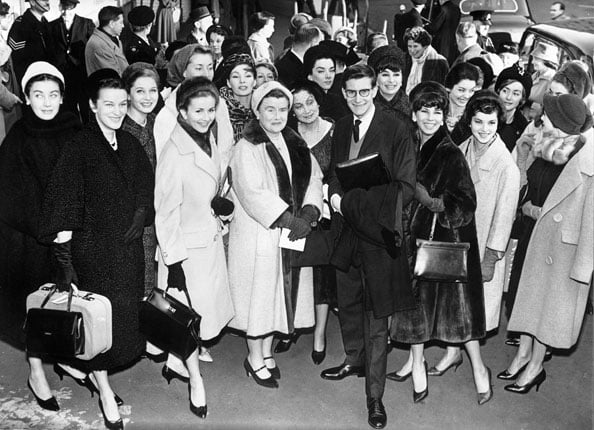
Yves Saint Laurent, the young French fashion designer who succeeded the late Christian Dior, arriving at Victoria Station London with some of his leading models
After being introduced to each other by Michel De Brunhoff, the editor of French Vogue, Yves Saint Laurent, 19, became Christian Dior’s design assistant. Two years later, in 1957, Saint Laurent was chosen to replace Dior as the head of the house. A man of tradition, Dior met with Yves Saint Laurent’s mother, Lucienne Mathieu-Saint Laurent, to tell her of her son’s promotion – she was shocked at the decision because she felt Dior was still young to step down at 52. Shortly after this meeting, Dior passed away from a heart attack. His funeral was attended by 2,500 people including all of his staff and famous clients including Hollywood stars, fashion leaders and royals including the Duchess of Windsor.
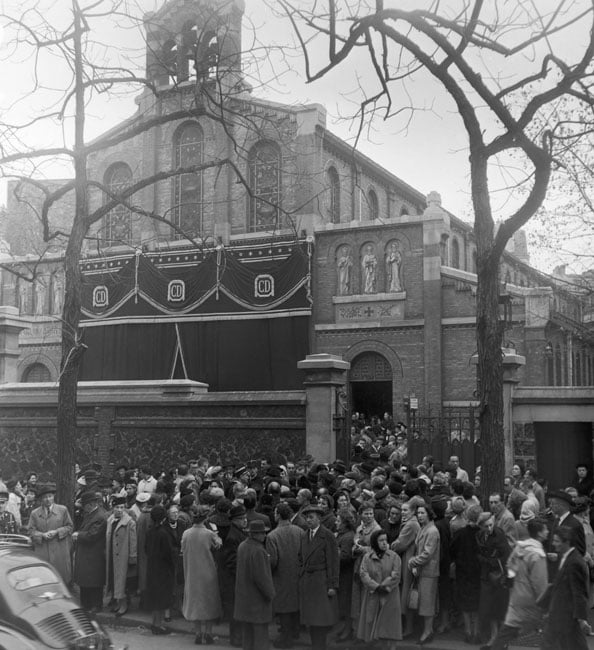
Crowds gathered at Saint Honore D’Eylau’S Church in Paris for the funeral of Christian Dior
Under Saint Laurent’s reign a softer version of Dior’s New Look, was created. It is believed the new line saved the enterprise from financial ruin. The artist director continued to attract elite clientele, even designing the wedding dress for Farah Diba when she wed the Shah of Iran.
Saint Laurent stepped down in 1960 when he was conscripted to serve in the French Army during the Algerian War of Independence.
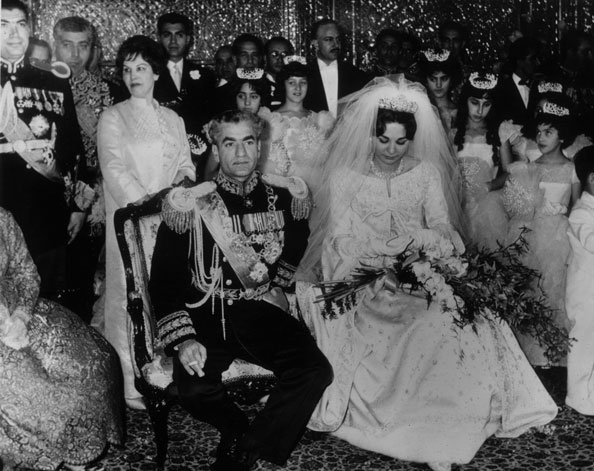
Farah Diba wearing a Dior dress of silk gaberdine embroidered with rhinestones and silver
Galliano Appoint Creative Director
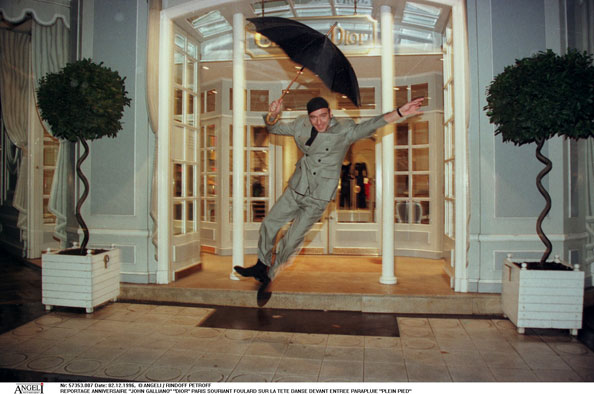
John Galliano outside the fashion house
Marc Bohan succeeded Yves Saint Laurent and in 1997, British designer John Galliano was brought in to replace Bohan. Galliano was said to “have the creative talent very close to that of Christian Dior.” The controversial designer remained the creative director of Christian Dior until March 2011, when he infamously was sacked after a being filmed making anti-Semitic remarks. Raf Simons has since taken over as artistic director at the house.
Some of the most iconic Christian Dior gowns:
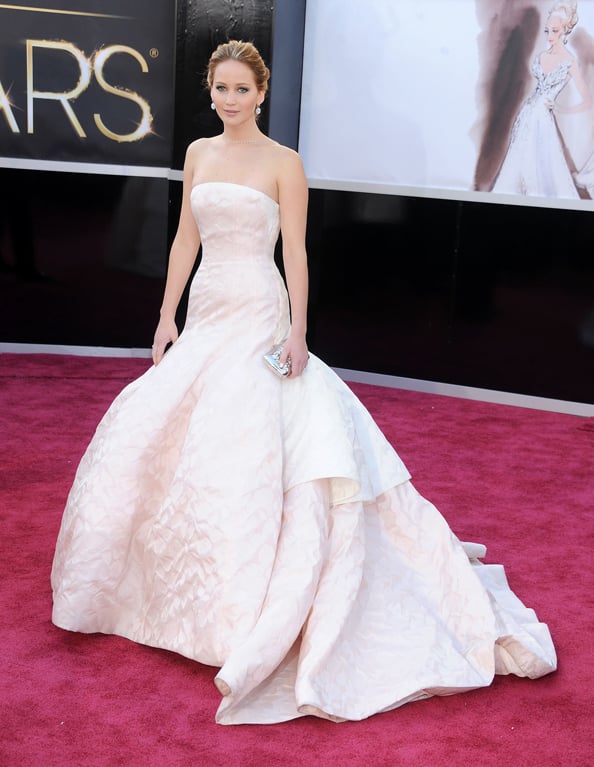
Jennifer Lawrence at the 2013 Oscars
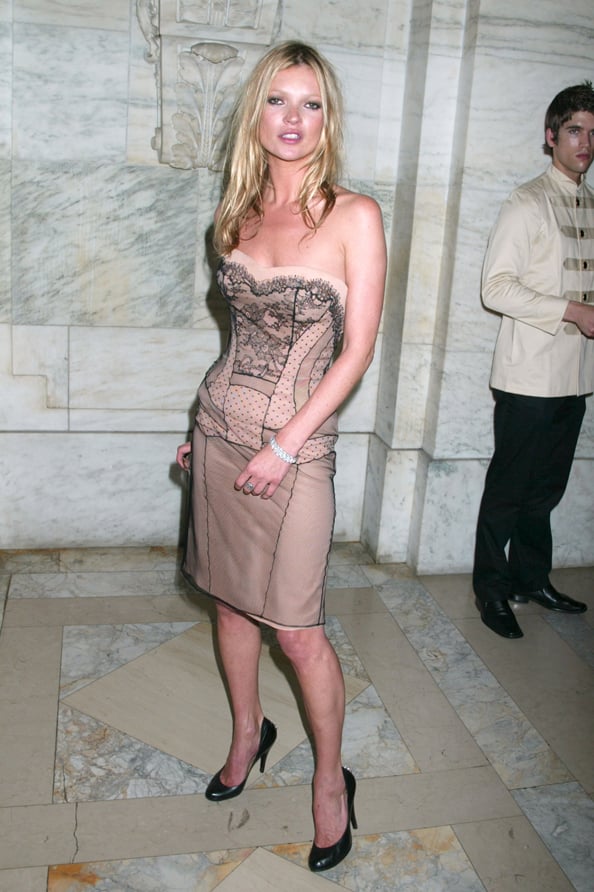
Kate Moss at the 2005 CFDA Awards
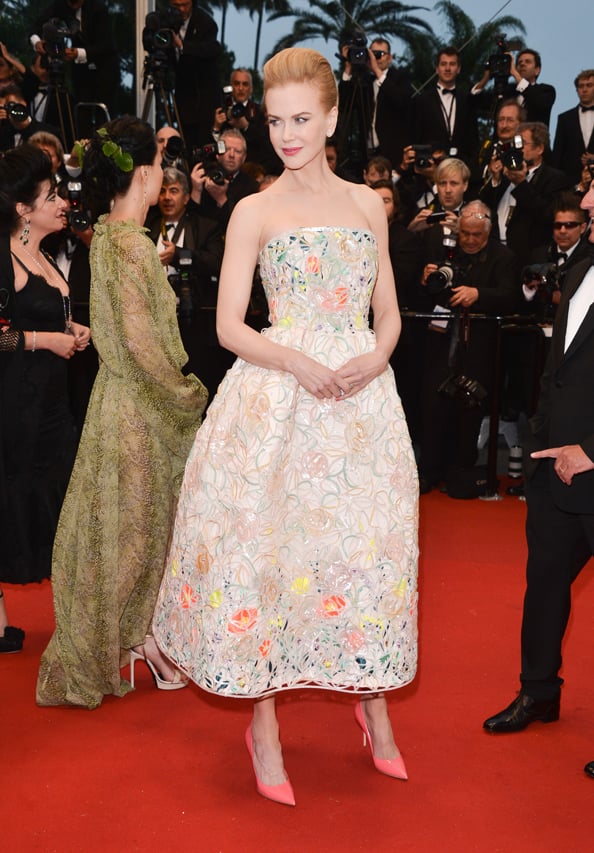
Nicole Kidman at The 66th Annual Cannes Film Festival
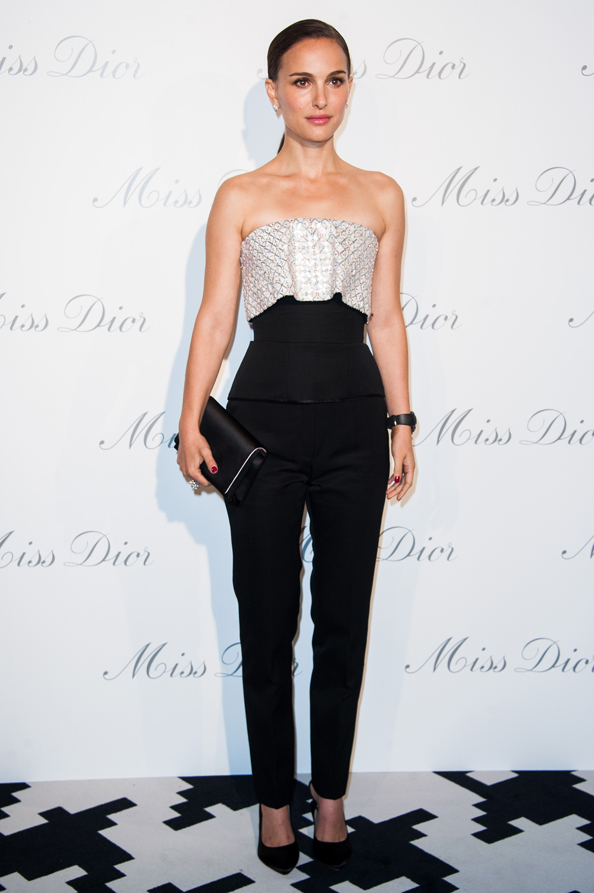
Natalie Portman, the face of Miss Dior, wearing Christian Dior Couture
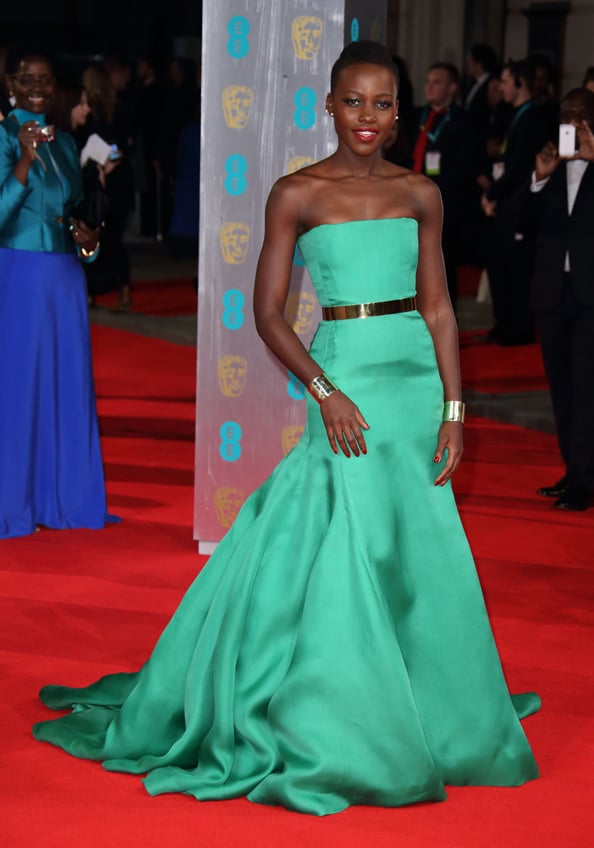
This Dior gown helped Lupita Nyongo before a modern style icon
Images: Getty












